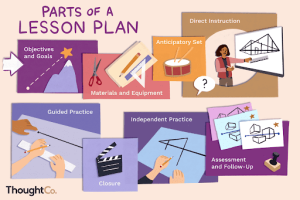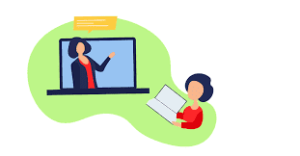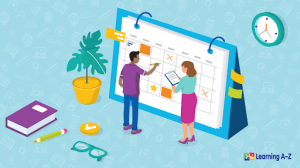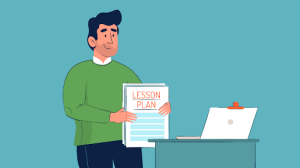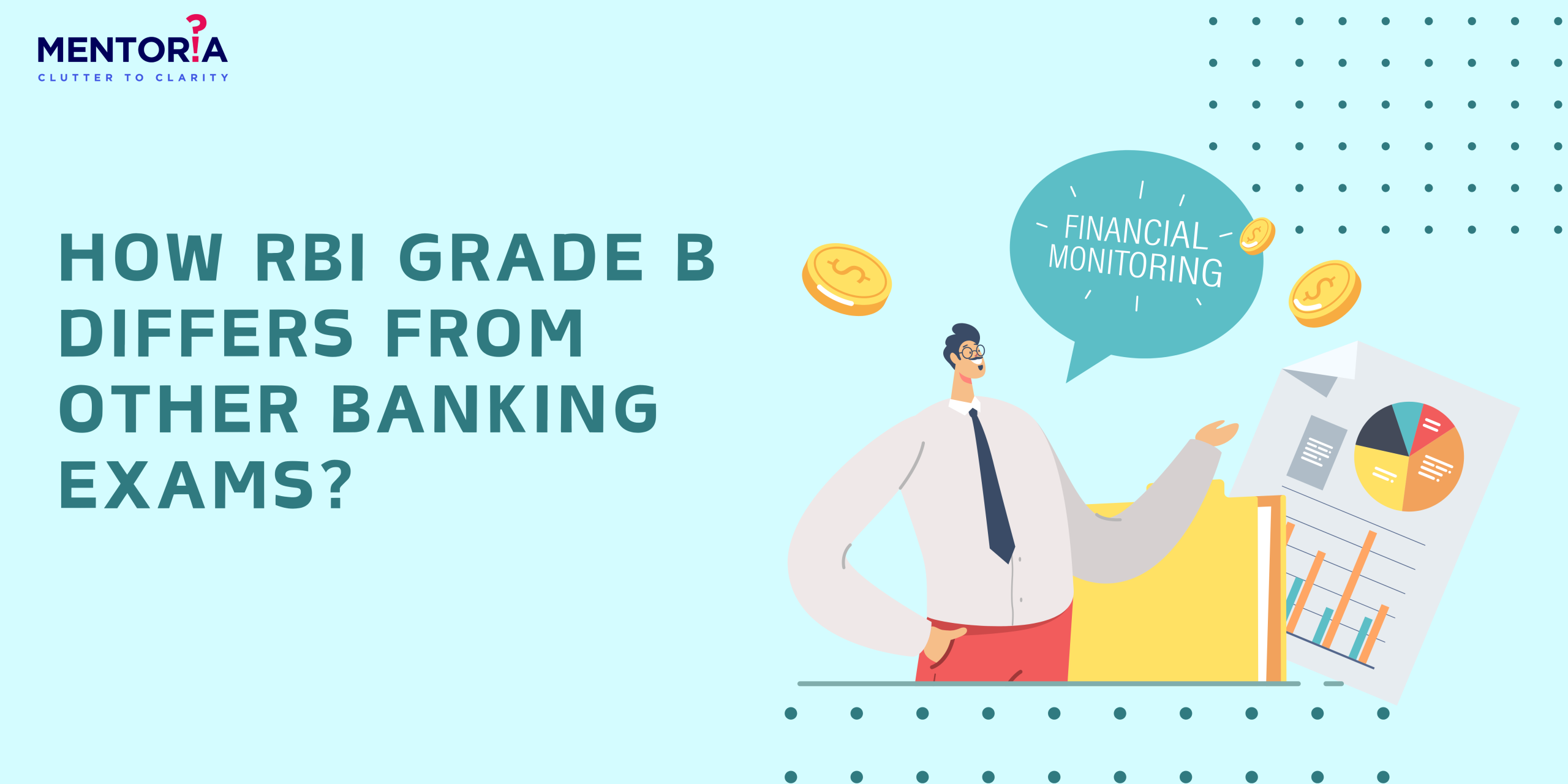Effective Lesson Plannings for Subject Teachers Before A Lecture
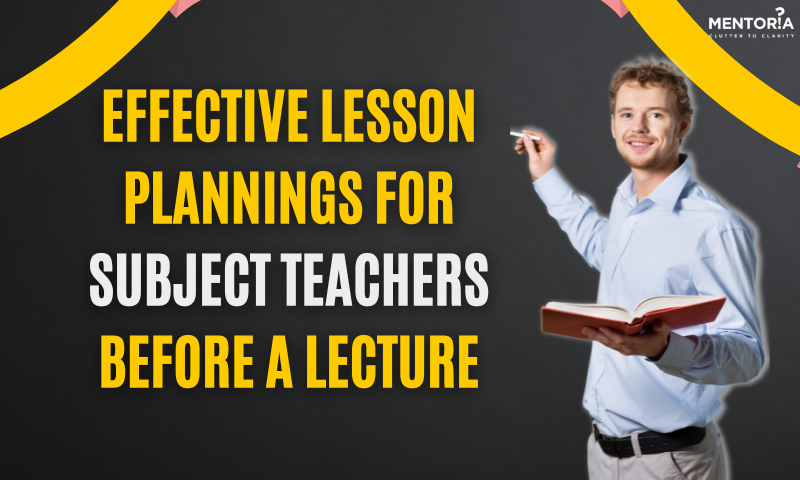
Are you a subject teacher struggling to engage your Gen Z students during lectures? Do you find yourself competing with their short attention spans and digital distractions? Well, fear not! With some effective lesson planning, you can create fun, relatable, and engaging lessons that will capture their attention and keep them motivated throughout your lecture.
In this blog post, we’ll explore some tips and tricks for effective lesson planning that will help you connect with your students. From incorporating multimedia and interactive activities to using relatable examples and storytelling, we’ll show you how to create lessons that are both informative and entertaining. So, grab your notepad and let’s dive into the world of effective lesson planning for subject teachers!
Effective Lesson Planning? Why Is This Required?
Teachers are often faced with long hours, large class sizes, and increasing pressure to meet academic standards. This can lead to burnout, which is a state of physical, emotional, and mental exhaustion. One of the ways to combat burnout is to focus on effective lesson planning. When teachers have a clear plan in place, they can feel more organised and prepared, which can reduce stress and anxiety.
It’s time to ditch the old-school lecture-style teaching methods and embrace a more dynamic and interactive approach that caters to the needs and preferences of your students. While these digital natives are incredibly tech-savvy and creative, they can also be a tough crowd to please in the classroom. But fear not, dear teachers! The key to winning over your Gen Z students lies in effective lesson planning. By incorporating interactive activities, multimedia, and real-life examples, you can create lessons that not only teach your subject matter but also resonate with your student’s interests and experiences. Here are some tips for creating effective lesson plans:
- Start with clear objectives:
Alrighty, teachers, it’s time to get SMART with our lesson planning! No, we’re not talking about being clever or witty (although that never hurts), we’re talking about creating learning objectives that are Specific, Measurable, Achievable, Relevant, and Time-bound.
Why, you ask? Well, when you set SMART learning objectives, you’re not just shooting arrows in the dark hoping they’ll hit the target. Instead, you’re setting clear goals that you and your students can work towards together. It’s like having a map that shows you the way to your destination, instead of driving around aimlessly hoping to stumble upon it.
Start by asking yourself, “What do I want my students to learn from this lesson?” Be specific and make sure your objectives align with your subject matter and your student’s interests. Then, create measurable criteria to evaluate learning, such as a quiz or project. Make sure your objectives are achievable, relevant, and time-bound, setting realistic goals within the timeframe of your lesson.
- Know your audience:
Ah, the generation that speaks in memes and emojis! But let’s be real, teachers, understanding your student’s learning styles, interests, and preferences goes beyond just being hip and trendy. It’s about creating lessons that are relevant, engaging, and effective for your students.
To cater to Gen Z students’ preferences, you need to know what makes them tick. They’re digital natives, so incorporating technology into your lessons is a must. But it’s not just about using fancy gadgets and flashy animations. It’s about using technology in a way that enhances your student’s learning experience, whether it’s through multimedia, interactive activities, or collaborative learning.
Start by observing how they learn and interact with each other. Do they prefer working in groups or individually? Do they respond better to visual aids or verbal instructions? What are their interests and hobbies outside of school? These are all important questions to ask when planning your lessons.
Next, try incorporating multimedia into your lessons, such as videos, infographics, and interactive games. These not only capture your students’ attention but also help to reinforce learning. You can also use collaborative learning activities, such as group projects and debates, to engage your students and promote teamwork.
Finally, don’t be afraid to get creative and have fun with your lessons! Incorporate pop culture references, memes, and other Gen Z interests into your teaching. Remember, the goal is to create an environment where your students feel excited and motivated to learn.
- Use relatable examples:
Alright, teachers, let’s get real…world with our lesson planning! We all know that the new generation of students is the king and queen of practicality. They want to know how what they’re learning in school applies to the real world. And let’s be honest, who can blame them? We all want to know that what we’re spending hours studying is actually going to be useful in our lives. So, how do we make our lessons relatable and practical? By using examples that connect to our student’s everyday lives, interests, and experiences. It’s all about showing them the relevance and importance of what they’re learning.
For example, in maths class, you can use real-world applications such as budgeting or calculating the cost of a road trip to teach concepts like percentages and ratios. In science class, you can use practical examples such as the science behind cooking or the effects of climate change on their local environment. In language arts, you can use relatable texts or pop culture references to teach literary devices and analysis skills.
But it’s not just about using examples that are relevant to your students. It’s about making them engaging and fun as well!
- Incorporate games and fun activities:
Now, we’re not just talking about any old games here. We’re talking about games that are educational, interactive, and most importantly, fun! For example, in a history class, you can have your students play a game of Jeopardy to review important historical events and figures. In a language arts class, you can have your students participate in a classroom debate on a current event or literary topic. And in a science class, you can have your students build a prototype of a renewable energy source or create a simulation of an ecosystem.
The possibilities are endless! And not only do these games and activities keep your students engaged and motivated, but they also help them to retain the information better. After all, when you’re having fun, it doesn’t feel like learning, does it? By incorporating games and fun activities into your lessons, you can teach important skills such as critical thinking, problem-solving, teamwork, and creativity.
- Use storytelling:
Once upon a time, in a land far, far away, there was a group of students who were bored out of their minds in a history class. They had heard all the facts and figures before, and nothing seemed to stick. That is until the teacher decided to incorporate storytelling into her lessons.
Suddenly, the class was transformed into an exciting adventure through time and space. The teacher used stories of historical figures, anecdotes of everyday life during different time periods, and case studies of important events to bring history to life.
The students were hooked! They couldn’t wait to hear the next story, and they were actually learning and retaining the information. And the best part was that they were able to connect emotionally with the subject matter. They felt empathy for the people in the stories and were able to understand the significance of historical events on a deeper level.
That’s the power of storytelling! It’s not just a way to entertain, but it’s a way to connect with your students and make learning meaningful. Whether you’re teaching history, science, or even maths, there’s always a story to be told that can bring your subject to life.
So, Are You Ready To Plan Your Way to Success?
Effective lesson planning is a crucial part of teaching that can help engage Gen Z students and prevent burnout among teachers. As a teacher, it’s important to remember that your job is not only to impart knowledge but also to inspire and engage your students. If you’d still like to clear the air that clouds your confidence and focus on your job, let’s hear it and work this out together! After all, a student is only ready when the teacher is!
And if you’d like to boost your career in teaching, head over to Mentoria to get all the help you need! Our experts are ever ready to change the world one step at a time, starting with you!
